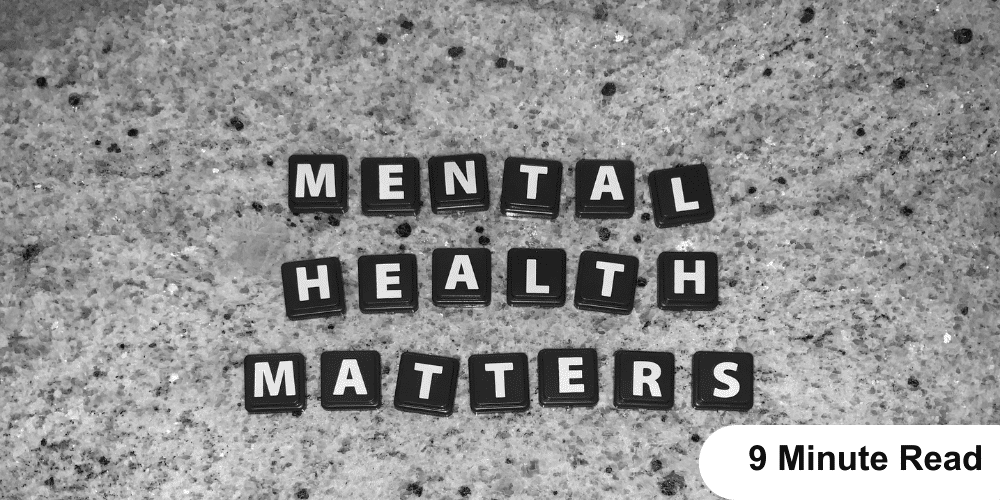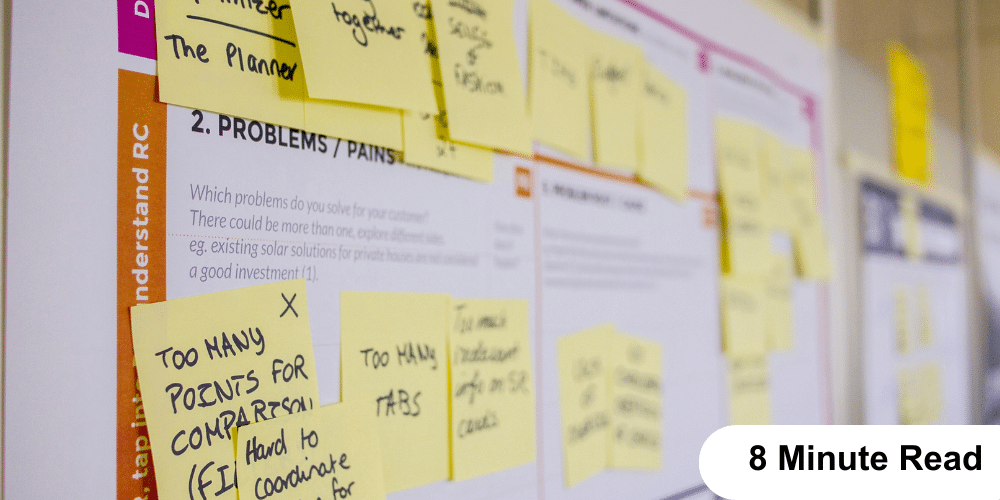10 Ways To Improve Mental Health
Mental health is an important aspect of our well-being. It directly affects how we think, feel, and act. It also influences how we handle stress, relate to others, and make choices.
No matter how hard we ignore it, focusing on our mental health is vital for a balanced and fulfilling life.
This blog will explore ten effective ways to improve mental health and your well-being. Additionally, we will discuss the importance of mental health training programs in the workplace and provide information about relevant courses available through Coggno.
Save Thousands Of Dollars With Coggno Prime Subscription
#1. Practice Mindfulness And Meditation
Mindfulness and meditation are powerful tools for managing stress and anxiety. These practices involve focusing your attention on the present moment, which can reduce the weight of negative thoughts and emotions. Mindfulness helps you stay present and focused, reducing stress and promoting a sense of calm.
To begin practicing mindfulness and meditation, you can start with just a few minutes daily and gradually increase the duration as you become more comfortable. There are many resources available, including apps and online guides, to help you get started. Regular practice can improve mental clarity, emotional stability, and overall well-being.
Benefits Of Mindfulness And Meditation:
- Reduces stress and anxiety
- Improves concentration and focus
- Enhances self-awareness and emotional regulation
- Promotes a sense of inner peace and well-being
#2. Maintain A Balanced Diet
The saying “You are what you eat” holds significant truth, especially when it comes to mental health. A balanced diet rich in fruits, vegetables, lean proteins, and whole grains can improve your mood and energy levels. Nutrient-dense foods provide the essential vitamins and minerals your brain needs to function optimally.
It’s also important to avoid excessive caffeine and sugar, as these can lead to mood swings and energy crashes. Instead, opt for healthier snacks like nuts, seeds, and fresh fruit. Staying hydrated by drinking plenty of water throughout the day is also crucial for maintaining good mental health.
Tips For A Balanced Diet:
- Incorporate a variety of colorful fruits and vegetables
- Choose lean proteins like fish, chicken, and legumes
- Opt for whole grains over refined grains
- Limit intake of processed foods, caffeine, and sugary snacks
Must Read: 16 Best Mental Health Courses Online with Certificates [2024]
#3. Prioritize Sleep
Adequate sleep is one of the best remedies for maintaining mental health. Aim for 7-9 hours of sleep each night and stick to a regular sleep schedule. Consistent sleep patterns help regulate your body’s internal clock, making it easier to fall asleep and wake up at the same time each day. Quality sleep is essential for cognitive function, mood regulation, and overall physical health.
Keep your bedroom dark, calm, and quiet to create a restful environment. Avoid screens before bedtime, as the blue light emitted by phones, tablets, and computers can interfere with your body’s production of melatonin, a hormone that regulates sleep. Instead, engage in relaxing activities such as reading a book, taking a warm bath, or practicing gentle stretches.
Tips For Better Sleep:
- Maintain a consistent sleep schedule
- Create a calming bedtime routine
- Avoid caffeine and large meals before bedtime
- Ensure your sleep environment is comfortable and free from distractions
Sleep, Rest & Renewal From The Everyday Wellbeing Series (Course)
#4. Engage In Regular Physical Activity
Regular physical activity is a cornerstone of good mental health. Exercise releases endorphins, which are natural mood lifters that can help alleviate symptoms of depression and anxiety. It also reduces stress, improves sleep, and boosts self-esteem.
Find an activity you enjoy and make it a regular part of your routine. It could be anything from a brisk walk in the park to a yoga session, a dance class, or a high-intensity interval training (HIIT) workout. The key is consistency; even moderate exercise for 30 minutes a day can make a significant difference in your mental health.
Benefits Of Regular Physical Activity:
- Boosts mood and energy levels
- Reduces stress and anxiety
- Improves sleep quality
- Affects positively on physical health
#5. Explore Outdoor Activities
Spending time outdoors and engaging in activities such as hiking, cycling, or simply walking in nature can have a profound impact on your mental health. The fresh air, natural light, and change of scenery can provide a much-needed break from daily stressors and offer mental rest and rejuvenation.
Outdoor activities help reduce stress, improve mood, and increase one’s sense of well-being. They also encourage physical activity, which, as mentioned earlier, is beneficial for mental health. Make it a habit to spend time in nature regularly, whether it’s a weekend hike or a daily walk in the park.
Advantages Of Outdoor Activities:
- Exposure to natural light boosts vitamin D levels
- Nature helps reduce stress and anxiety
- Improves mood and mental clarity
- Encourages physical activity and social interaction
Must Read: 10 Small Habits That Will Help You Become Mentally Strong
#6. Build Strong Social Connections
Humans are inherently social creatures, and strong relationships are vital for mental health. Social connections provide emotional support, reduce feelings of isolation, and contribute to a sense of belonging. Make an effort to maintain connections with family and friends, and don’t hesitate to reach out to new people.
Joining clubs or groups that interest you is an excellent way to meet new people and build a support network. Whether it’s a book club, a sports team, or a volunteer group, being part of a community can significantly enhance your mental well-being.
Ways To Build Strong Social Connections:
- Stay in touch with family and friends
- Join clubs or groups with shared interests
- Attend social events and gatherings
- Be open to meeting new people and forming new friendships
#7. Practice Gratitude
Practicing gratitude can significantly improve your mental health by shifting your focus from what’s wrong in your life to what’s going well. Take a few minutes daily to write down things you’re thankful for. This simple practice can enhance your mood, reduce stress, and promote a positive outlook on life.
Gratitude exercises can include keeping a gratitude journal, writing thank-you notes, or simply reflecting on positive experiences. Regularly acknowledging the good in your life helps foster a sense of contentment and appreciation.
Benefits Of Practicing Gratitude:
- Increases positive emotions and happiness
- Reduces stress and negative thoughts
- Fosters a positive outlook on life
#8. Limit Social Media Use
While social media can help you stay connected, excessive use can lead to feelings of inadequacy, anxiety, and depression. The constant comparison with others and the barrage of information can be overwhelming and detrimental to mental health.
Set boundaries for your social media use and take regular breaks to focus on real-world interactions and activities. Consider setting specific times for checking social media and avoid using it first thing in the morning or before bed.
Tips For Healthy Social Media Use:
- Set time limits for social media use
- Take regular breaks and digital detoxes
- Focus on real-world interactions and activities
- Be mindful of the content you consume and its impact on your mental health
Must Read: Social Media Pros and Cons for Educators
#9. Seek Professional Help When Needed
There is no shame in seeking help from a mental health professional. Therapists, counselors, and psychiatrists can provide valuable support and guidance for managing mental health challenges. If you’re feeling overwhelmed, anxious, or depressed, reaching out to a professional can be a crucial step toward recovery.
Professional help can provide you with tools and strategies to cope with mental health issues, improve your emotional well-being, and lead a more fulfilling life. Don’t hesitate to seek help when needed; it’s a sign of strength, not weakness.
When To Seek Professional Help:
- Persistent feelings of sadness or anxiety
- Difficulty managing daily tasks and responsibilities
- Significant changes in mood, behavior, or personality
- Thoughts of self-harm or suicide
#10. Incorporate Creative Outlets
Engaging in creative activities such as writing, painting, or playing music can be a great way to express your emotions and reduce stress. Creative outlets provide a sense of accomplishment, enhance self-expression, and offer a productive way to channel your feelings.
Find a creative activity that you enjoy and make time for it regularly. Whether it’s drawing, crafting, dancing, or cooking, engaging in creative pursuits can improve your mental health and provide a much-needed break from daily routines.
Benefits Of Creative Outlets:
- Enhances self-expression and emotional release
- Reduces stress and promotes relaxation
- Fosters a sense of accomplishment and pride
- Provides a productive and enjoyable way to spend your time
The Need For Mental Health Training Programs In The Workplace
Mental health training programs in the workplace are essential for fostering a supportive and healthy work environment. These programs provide employees with the knowledge and tools to manage their mental health effectively, recognize signs of mental health issues in colleagues, and offer support when needed.
Workplace mental health training can lead to improved employee well-being, increased productivity, and reduced absenteeism. By prioritizing mental health, employers can create a more positive and inclusive workplace culture where employees feel valued and supported.
Benefits Of Mental Health Training Programs:
- Increased awareness and understanding of mental health issues
- Better support for employees experiencing mental health challenges
- Enhanced workplace culture and employee morale
- Reduced absenteeism and increased productivity
Mental Health Courses From Coggno
For those interested in improving their mental health or learning how to support others, Coggno offers a variety of mental health courses. These courses cover topics such as stress management, mindfulness, emotional intelligence, and mental health awareness. By enrolling in these courses, individuals can gain valuable insights and practical skills to enhance their mental well-being and support others in their journey.
Coggno’s mental health courses are designed for both individuals and organizations, providing flexible and comprehensive training solutions. Whether you’re looking to improve your mental health or implement a mental health training program in your workplace, Coggno has the resources you need.
Frequently Asked Questions (FAQs) On Mental Health And Training Programs
Q. Why is mental health important?
Mental health is crucial for overall well-being. It affects how we think, feel, and act. It influences how we handle stress, relate to others, and make choices. Good mental health is essential for living a balanced and fulfilling life.
Q. How can I improve mental health?
There are several effective ways to improve mental health, including
- Practicing mindfulness and meditation;
- Maintaining a balanced diet;
- Prioritizing sleep;
- Engaging in regular physical activity;
- Exploring outdoor activities;
- Building strong social connections;
- Practicing gratitude;
- Limiting social media use;
- Seeking professional help when needed;
- Incorporating creative outlets.
Q. What are the benefits of mental health training programs in the workplace?
Mental health training programs in the workplace can increase awareness and understanding of mental health issues, provide better support for employees experiencing mental health challenges, enhance workplace culture and employee morale, reduce absenteeism, and increase productivity.
Q. Where can I find mental health courses?
Coggno offers a variety of mental health courses covering topics such as stress management, mindfulness, emotional intelligence, and mental health awareness. These courses are designed for both individuals and organizations and provide flexible and comprehensive training solutions.
Q. When should I seek professional help for mental health issues?
You should seek professional help if you experience persistent feelings of sadness or anxiety, difficulty managing daily tasks and responsibilities, significant changes in mood, behavior, or personality, or thoughts of self-harm or suicide. A mental health professional can provide valuable support and guidance for managing these challenges.
Bottom Line
Improving mental health is an ongoing journey that requires dedication and self-awareness. With the above ten effective strategies discussed in this blog, you can enhance your mental well-being and lead a more balanced and fulfilling life. Don’t forget to take advantage of available resources on mental health from Coggno.
Maximize Training, Minimize Costs With Coggno Prime








